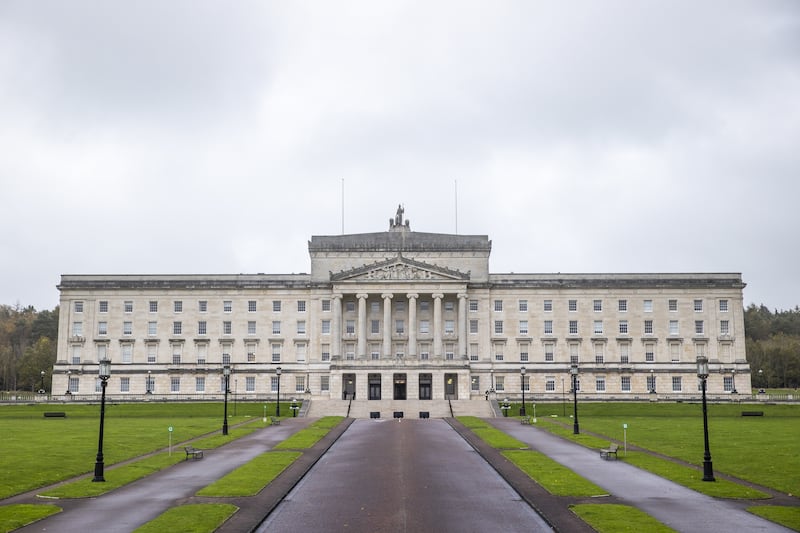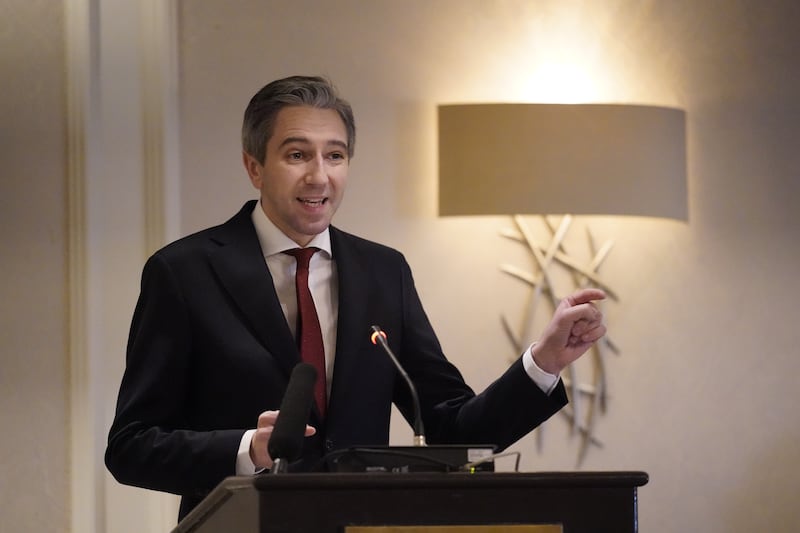The Good Friday Agreement 25th anniversary celebrations are over and the various protagonists have returned to their charitable foundations, lecture circuits and budding presidential campaigns. The news cycle will quickly get back to focussing on the present and the immediate issue of Stormont’s restoration. Few expect a breakthrough soon, however, and the closer we get to May 18’s local government elections, the less the likelihood.
Sir Jeffrey Donaldson stayed away from the main jamboree at Queen’s University but no doubt his ears were burning for much of the three days. He described the conference as a “bubble” that “lacked realism”, in contrast to London – the exact location or institution unspecified – where he said the mood was rather different.
Some of those using the Queen’s University event to urge a restoration of institutions created by the 1998 accord chose a more oblique approach, arguing that political stability was necessary in order to realise any potential peace dividend, while others were more direct.
Chris Heaton-Harris was arguably the most forthright, saying the surest way to secure the north’s place in the union was through Stormont. A clear message to the DUP that yet again its tactics were serving to undermine its strategic goals. Rishi Sunak took a similar tack, but it was Mr Heaton-Harris’s words that appeared to irk the DUP most. East Belfast MP Gavin Robinson said the secretary of state’s speech was “more akin to a speech by a clueless Irish American congressman” than a British government minister, a swipe that was clearly designed to land on more than one target.
The public rebuke is telling. When appointed last year, it was believed Mr Heaton-Harris, like his former European Research Group colleague Steve Baker, would be largely sympathetic to the DUP cause. It’s very possible he was, though from the get-go it was clear the Sunak administration was taking a much more pragmatic approach compared to the belligerence of its predecessors.

However, relations between the DUP and British government, or in particular Mr Heaton-Harris, appear to have deteriorated in the weeks since the Windsor Framework announcement. Earnest negotiation and ultimately compromise between the EU and UK set the scene for devolution's return but just as a solution was presented, the DUP appeared to raise the bar a little higher, insisting more work needed to be done.
Sir Jeffrey’s prevarication and petulance have frustrated Downing Street, which had hoped matters would have been resolved in time for President Biden’s visit. Embarrassingly for Rishi Sunak, the DUP has dug its heels in, even having the audacity to vote against the Stormont brake, a mechanism engineered with the party’s input and designed specifically to appease it.
At the same time, initial commitments by the secretary of state to legislate to reassure unionists that their constitutional position in the United Kingdom is secure appear to have fallen by the wayside.
In early March, following the Windsor Framework announcement, Mr Heaton Harris said he was looking to bring forward amendments to the Northern Ireland Act. Nationalists were quick to warn that any efforts to unilaterally tweak the Good Friday Agreement would not be tolerated. The secretary of state is understood to have received a similar message from Dublin.
The sense that we’ve seen everything that’s on offer was reaffirmed yesterday by Taoiseach Leo Varadkar, who said that the new EU-UK trade deal will not be renegotiated. Sir Jeffrey must by now have whatever report the Peter Robinson-led panel compiled, which no doubt includes predictable responses from reactionary unionism coupled with a clear enthusiasm from business to embrace the new arrangements.
It's becoming increasingly difficult to second guess a DUP which takes its cues as much from outside the party as within but in common with the rest of us, it appears that the British government's patience and good will is finally exhausted.








